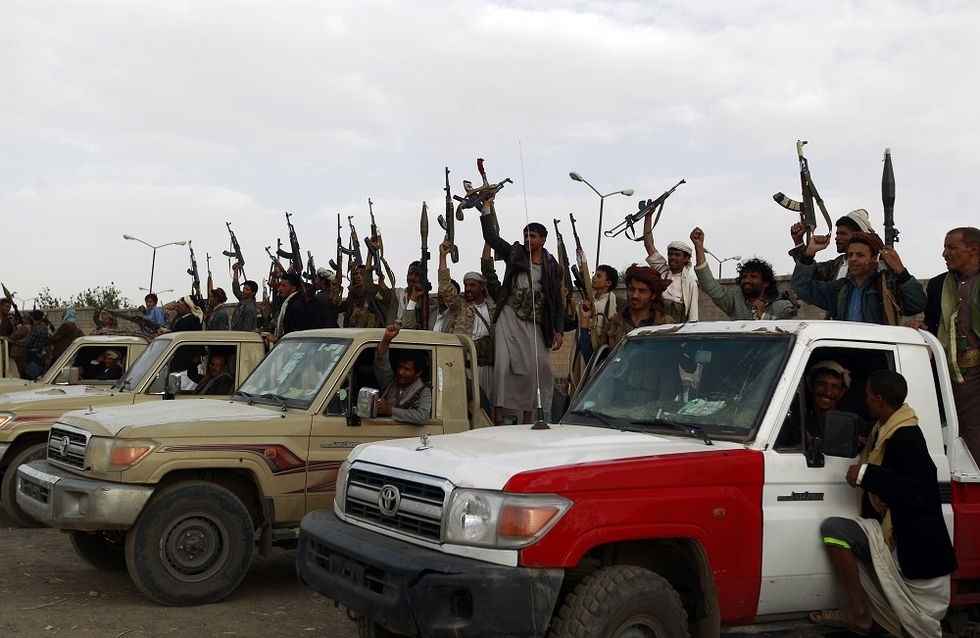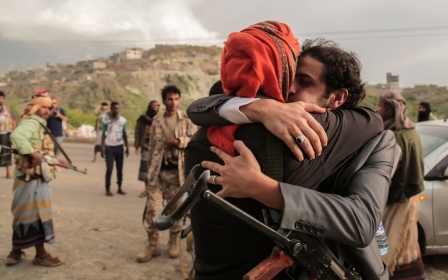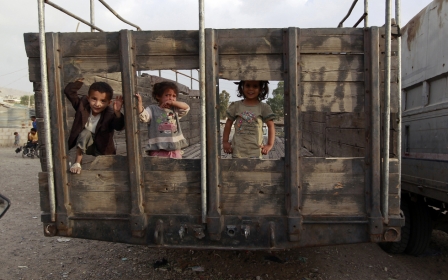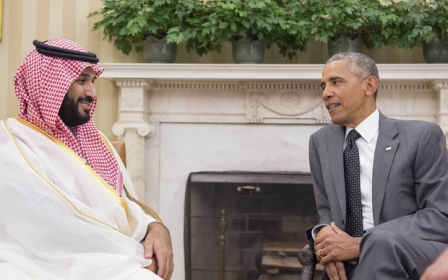Yemeni government casts doubt on UN-backed peace talks

Yemen's government expressed doubts over UN-backed efforts to end its conflict with Shia Houthi rebels who have seized control of large parts of the country.
The government still has "fundamental differences" with the Houthis over "their rejection... of measures that are necessary to put an end to their plot", it said in a statement late on Friday.
Yemen's warring parties are taking a two-week break from peace talks in Kuwait that have made little headway since they began on 21 April.
The government, supported by a Sunni coalition headed by Saudi Arabia, demands that the Iran-backed rebels withdraw from cities including the capital, Sanaa, and give back arms they have seized.
It wants to re-establish its authority across the entire country and restart a political transition that was interrupted when the Houthis ousted President Abedrabbo Mansour Hadi and seized Sanaa in 2014.
The rebels have conditioned their withdrawal on both sides agreeing on a new president to manage the transition.
Peace will be imposed by all means, even by force - Prime Minister Ahmed bin Dagher
"Due to the stubbornness (of the rebels) and their procrastination, it was not possible to agree on any item on the agenda" of the Kuwait talks, the government delegation said.
The negotiators will spend the next two weeks discussing their positions before reconvening on 15 July, UN mediator Ismail Ould Cheikh Ahmed said earlier this week.
He said they would then return to Kuwait "with practical recommendations on how to implement the necessary mechanisms that will enable them to sign a peace accord".
Ould Cheikh Ahmed has urged both sides to make concessions to end the conflict, which has cost more than 6,400 lives since March 2015, when the Saudi-led coalition intervened to push back the Houthis.
On Thursday, the UN envoy said the two sides had "established the main principles that will guide the next phase of Yemen talks".
He has put forward a peace roadmap that would see the formation of a unity government and the withdrawal and disarmament of the rebels.
He said the negotiators had welcomed his proposal but had not agreed on a timetable or the steps needed to implement it.
Yemen's Prime Minister Ahmed bin Dagher told the rebels and their allies, supporters of former president Ali Abdullah Saleh, that they had no choice other than to make peace.
"Peace will be imposed by all means, even by force," he said in a statement published by Yemen's government-controlled Saba news agency.
"Everyone without exception will have to submit to the authority of the state."
New MEE newsletter: Jerusalem Dispatch
Sign up to get the latest insights and analysis on Israel-Palestine, alongside Turkey Unpacked and other MEE newsletters
Middle East Eye delivers independent and unrivalled coverage and analysis of the Middle East, North Africa and beyond. To learn more about republishing this content and the associated fees, please fill out this form. More about MEE can be found here.




